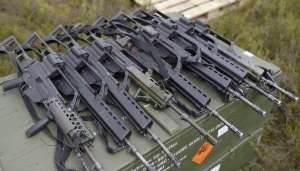With the leu reaching a new historical low every day, some analysts believe that the root cause is the budget deficit, which exceeded 5% of the gross domestic product in 2008, calculated by European standards. Mihai Tanasescu, Romania"s representative to the International Monetary Fund (IMF), believes that the presentation of the budget for 2009 and the credibility of the projected austerity measures will play a key role in the stabilization of the exchange rate and the restoration of investor confidence in Romania"s public policies. The sustainability of the fiscal policy will be the most critical factor in the construction of the new budget, Tanasescu added.
"The depreciation of the leu is part of a wider regional context. Just as the zloty, the Turkish lira and other regional currencies, the leu has been on a downward trend as a result of massive forex export from the Central and Eastern Europe. The budget deficit of more than 5% of the GDP in 2008, calculated according to the EU calculation standard ESA 95, simply shocked investors. Naturally, a prudent approach to the fiscal policy for 2009 will be a factor of confidence and stability," Tanasescu added.
In his opinion, the more important part is not the budget deficit for 2009, but the ways in which it can be financed. "I believe that the new budget should start from the financing resources that are necessary and available in accordance with the foreign resources that can be secured in order to cover the entire foreign deficit of Romania, and not from the needs of the line ministries," Tanasescu told Bursa. "Fiscal sustainability is first of all about the credibility of financing," he added.
The budget for this year needs great adjustments, according to Romania"s representative to the IMF, who explained that a budget deficit cut higher than 2 percentage points of the GDP was a process which entailed a set of measures to reorganize public spending, and also a revaluation of the revenues which are impossible to mobilize.
Tanasescu believes that 2009 will bring a drastic economic growth slowdown. "Unfortunately, structural reform has been abandoned for several years and the economy still depends upon many random factors. One example is the agriculture, which is highly volatile, weather-dependent and capable of putting a negative influence on the economic growth. This is why I believe that prudence should be the keyword for public policies in 2009. Also, public deficits needs to be limited as much as possible," he added.
In such context, the consolidation of the financing resources for the budget deficit and the foreign deficit is the top objective. Foreign resources need to be secured in order to restore confidence in the banking system, resume lending in the real economy and further continue to increase forex reserves in order to achieve a stable and predictable exchange rate, Tanasescu stressed.
Fitch analyst Andrew Colquhoun believes that the recent fluctuation of the exchange rate is rather abrupt, but probably there is a need either for a fast depreciation of the leu, or for a depreciation spread for a longer period of time under the control of the National Bank, or both, in order to minimize the risk of widespread economic destabilization.
Colquhoun said the agency had been concerned for some time about the foreign financing slowdown, which could lead to a rapid depreciation of the leu, which could destabilize the Romanian economy. He explained that a smaller budget deficit could have hampered domestic demand to some extent, would have reduced imports, the current account deficit and the risks related to foreign financing.
In his view, Romania has come to that point, where a lower exchange rate could help the country to cut the current account deficit through a more competitive domestic industry. However, as the economy is operating at maximum capacity after years of strong economic growth, there is a risk that a sudden depreciation of the leu would only affect the inflation rate, which would annul the recently gained competitiveness. Colquhoun said he would not react to short-term changes, unless the situation was extremely difficult, and he would continue to monitor facts as they developed.



























































